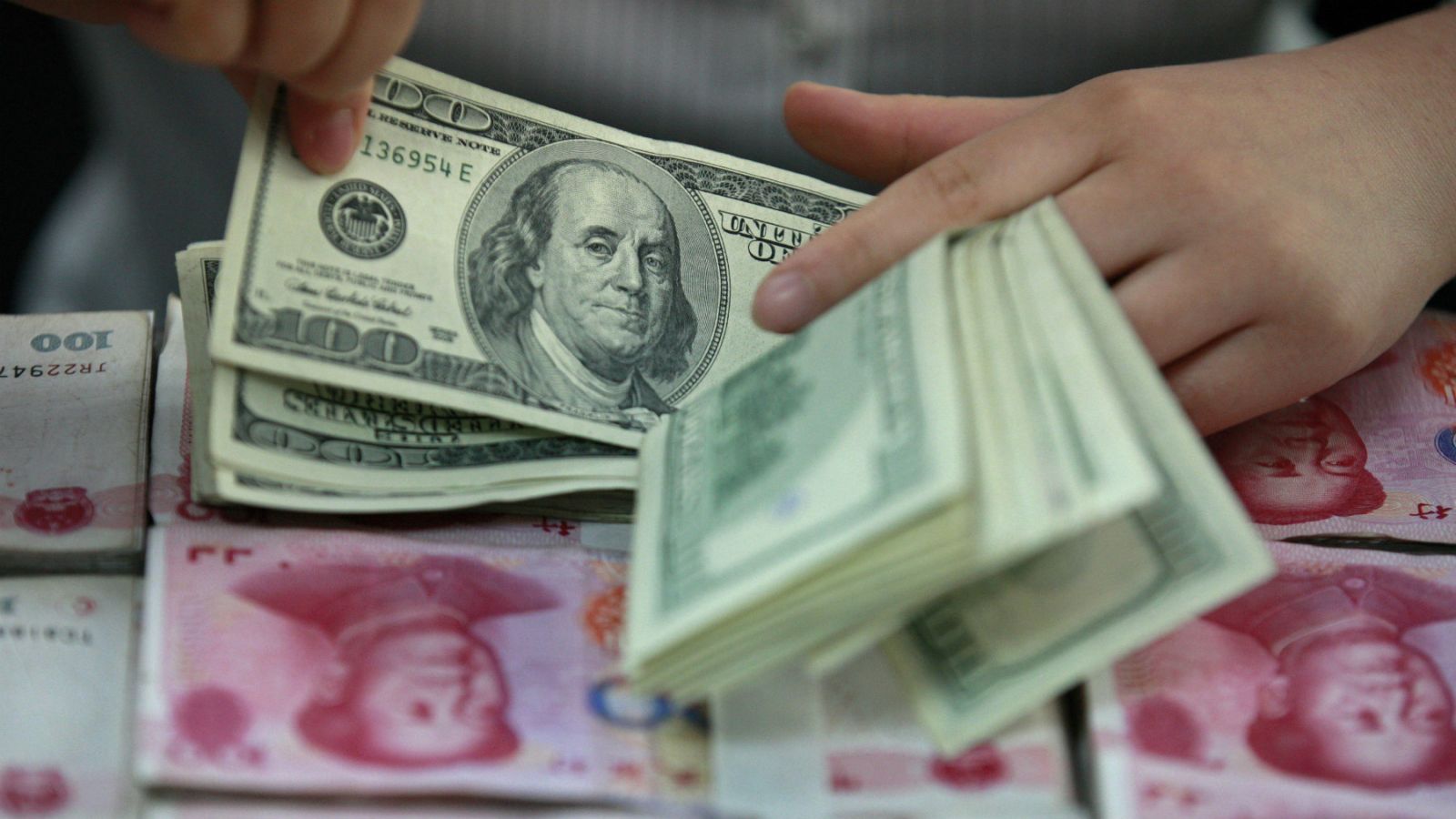- Nigeria’s Domestic Debt Refinancing Strategy
Obinna Chima examines the federal government’s public debt restructuring plan by way of refinancing maturing treasury bills with cheaper and longer term external debt.
Badly weighed down by the debilitating effect of Nigeria’s huge debts and rising debt servicing cost brought about by high domestic interest rate, the federal government last week sought a way out by approving the issuance of dollar-backed treasury bills as it extended the maturity period from between 91 and 364 days to two and three years respectively.
Clearly, since the 2006 debt forgiveness by the Paris Club, successive administrations have deliberately pursued a strategy of financing more than 50 per cent of annual fiscal deficits from the domestic market.
Hence, Nigeria’s debt profile has in the recent past largely favoured local sources of borrowing which in the first quarter of 2017 constituted 80.8 per cent of the federal government’s total debt with 24.3 per cent of these in form of treasury bills.
Debt refinancing is a term used for the process of converting original debt into new debt. This is often done for the purpose of consolidating debts and allowing easier and more efficient payment.
One of the main objectives of debt refinancing is the overall lowering of interest rates, which becomes possible once debts have been consolidated.
By having debt refinanced, the country would change its short-term loans into long-term loans.
This therefore extends the period of time during which the country would have to service its debt.
Extending such payment terms, businesspundit.com, explained, lowers the amount due per month. This lessens the amount that goes to debt servicing, improves cash flow and enables smooth operations.
Throwing more light on the policy initiative, Minister of Finance, Mrs. Kemi Adeosun, said the council approved a memo restructuring the issuance of treasury bills using dollar instruments subject to the approval of the National Assembly.
According to her, the extension of the tenor of Treasury bill from the current 91 and 364 days to two and three year period would provide the government with relief from the pressure to repay the debt.
She also said the new initiative would reduce government borrowing to $3 billion, create more room for banks to lend money to private investors and consequently force down interest rates.
She explained that issuing the Treasury bills in dollar instrument was not synonymous with paying interest in dollars but would instead, provide the government with the opportunity to obtain a bond in the international capital market and pay the debt in a cheaper way.
She insisted that it should not be construed as transacting the Treasury bill in dollars.
Adeosun explained: “We are not issuing dollar denominating treasury bills. No, we are not. What we are doing is that the naira treasury bill, when it matures, we will then issue bonds in the capital market, international capital market. We are not issuing dollars’ TB at all – erratic dollar bonds.
“You will recall that when we went to the capital market about three times this year, our average cost of borrowing was longer than 7 per cent. But with Treasury bills, we are paying up to 18 per cent. So, what we are doing is simply substituting the maturing naira debt with cheaper dollar denominating debt. We are not dollarising the economy.
“In terms of the impact on naira, it’s going to be positive because it means that $3 billion will be coming into our foreign reserve. It will actually increase our foreign reserves.
“We are not issuing Treasury bills in dollars. Nigerian government doesn’t transact in dollars at all. We are not paying anybody in dollars. What we are simply doing is that as the Nigerian government treasury bills mature, we are now going to pay off by proceeds of dollar denominating bond, a three year-bond.
“What we are saying is that in the long run because we are coming into recovery, we need a little bit more time to repay. Instead of saying we are paying back in 91 days, we say, ‘let’s be realistic, we need two to three years to pay off this money.’ So, we are taking dollar denominating long term bonds. It is cheaper than the naira loans and we refer them to the Treasury bill. We are not dollarising our economy in any way.
“Also, if you look at the debt profile, 80 per cent of them is in naira. That stretches a challenge to the economy. Because government borrows heavily, there is no room for the private sector to get loans. Also, there is no incentive for the bank to lend to the private sector.
“What we think we need to do to create jobs and get the economy moving is for private sector lending to be commenced from this $3 billion dollars but we will not take from the domestic market. Our strategy is to restructure our debt in the international market.
“When the National Assembly resumes, we need a resolution to do this. We borrow less because it is cheaper to pay back. It makes it cheaper and we refer them to the economy.
“So, we are taking dollar denominating bond which is cheaper and we refer them to the Treasury bills.”
Analysts’ Position
To analysts at Afrinvest West Africa Limited, the move by the federal government is positive, but stressed that the jury was still out on its likely impact on yields and lending rates
They further explained that the initiative, if approved, would be positive for the economy given the prevailing high servicing cost of debt – estimated at 66.6 per cent of revenue in the first half of 2017 – which has raised debt sustainability questions.
“Notwithstanding the recent monetary policy tightening course of most advanced central banks, interest rates still remain at very low level in most developed markets and the FGN could take advantage of the huge demand for high yield emerging market bonds to raise capital at relatively cheaper rate.
“For instance, Nigeria’s recently issued $300 million 5-year diaspora bond was priced at an effective yield of 5.6% while a similar local currency (LCY) bond with same tenor was issued at a yield of 16.2%.
“Apparently, debt servicing burden could ease by reducing LCY leverage for FCY borrowings but this also comes with a downside risk of increased fiscal balance exposure to Naira volatility.
“We note that Nigeria’s $13.8 billion external debt as of first quarter 2017 is mostly comprised of concessionary multilateral and bilateral loans (up to 78.3%); there is still scope for more commercial FCY borrowings.”
Furthermore, Afrinvest pointed out that increasing fiscal deficit over the years had crowded out private sector borrowers with local commercial banks shunning risk assets for high yield and risk free treasury securities. This, they said reflected in the 3-year average private sector credit growth which was estimated to have fallen below three per cent in real terms (ex-naira devaluation impact). “However, whilst we are convinced the proposed plan by the FEC will lower government borrowing cost, the jury is still out on likely impact on domestic interest rate, the yield curve and private sector credit expansion,” they added.
Nevertheless, the pessimism was based on the fact that: “The CBN’s policy instruments – open market operations (OMO) and discount window rates – are more potent drivers of yield curve movement and lending rates than the FGN’s borrowing cost.
“Risk assessment of the real economy, to a large extent, determines credit policies of banks. Hence, our view is that the FGN’s debt refinancing will at best achieve a lower borrowing cost in the interim without necessarily moderating domestic interest rate environment or buoying loans to private sector.
“More importantly, the monetary policy authority will necessarily need to signal a departure from its current hawkish stance by guiding OMO rates downward before interest rate environment normalises and becomes attractive for corporate issuers.
“Finally, domestic and external macroeconomic conditions have to sufficiently improve for the CBN to ease monetary policy while structural reforms must be deepened to de-risk real sector lending.”
Also, the Chief Executive Officer, Financial Derivatives Company Limited, Mr. Bismarck Rewane, described it as a good policy initiative that would help to lower interest rate and take the economy out of recession.
Rewane explained: “Take the $3 billion and convert to naira and pay off the treasury bills. In all, it will give you about N1trillion. N1trillion is about 20 per cent of our outstanding debt stock. If you retire N1trillion of treasury bills, the demand for treasury bills will go down and interest will go down.
“And when the interest rate of treasury bills goes down, the interest rate on public debt would also go down and that would help reduce the cost of borrowing, for even the private sector.”
Responding to the question on the implication of the initiative of the FEC on the country’s total debt stock, the economist clarified: “You are not increasing your debt. You are using $3 billion debt to pay off. So, the total debt stock will not increase. The structure is going to change. So, you are using debt, which is of lower cost and longer maturities to take out the short term debt. That is the best thing that can happen to Nigeria.”
In addition, Ecobank Nigeria’s analyst, Mr. Kunle Ezun, expects that if the policy is implemented in no distant time, interest rate on treasury bills would crash.
But he argued that the policy divergence between the fiscal and monetary policy authorities might be an impediment.
“The fiscal policy authorities are focused on how quickly they can crash interest rate, but if the central bank continues to hold monetary policy tight and keeps things the way they are now, then it will be difficult for the fiscal authorities to achieve that result. But over time, this might force the CBN to tweak its monetary policy.
“For the exchange rate, this initiative will be good because when the dollar comes in; it will be converted and used to augment our reserves. So, that will be a plus to the reserves. So, if you have enough buffers, it means that the CBN can keep doing what they are doing,” Ezun added.


 Forex2 weeks ago
Forex2 weeks ago


 Naira2 weeks ago
Naira2 weeks ago
 Naira4 weeks ago
Naira4 weeks ago
 Company News4 weeks ago
Company News4 weeks ago
 Billionaire Watch1 week ago
Billionaire Watch1 week ago




 Naira2 weeks ago
Naira2 weeks ago




 Naira4 weeks ago
Naira4 weeks ago




 Naira1 week ago
Naira1 week ago





















